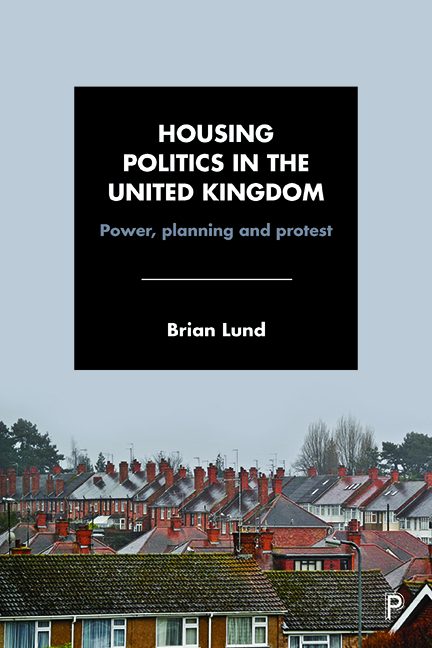Book contents
- Frontmatter
- Contents
- Acknowledgements
- Preface
- one Housing and politics
- two Land politics
- three Urban renewal: fencing the cities
- four Private landlords: ‘Rachmans’ or ‘residential property-owners’?
- five A property-owning democracy?
- six Eclipsing council housing
- seven Bending the ‘Third Arm’: politicians and housing associations
- eight Homelessness politics
- nine Devolution: where is the difference?
- ten Conclusion: power, planning and protest
- References
- Index
six - Eclipsing council housing
Published online by Cambridge University Press: 05 April 2022
- Frontmatter
- Contents
- Acknowledgements
- Preface
- one Housing and politics
- two Land politics
- three Urban renewal: fencing the cities
- four Private landlords: ‘Rachmans’ or ‘residential property-owners’?
- five A property-owning democracy?
- six Eclipsing council housing
- seven Bending the ‘Third Arm’: politicians and housing associations
- eight Homelessness politics
- nine Devolution: where is the difference?
- ten Conclusion: power, planning and protest
- References
- Index
Summary
State houses, supplied by local government, presented a fundamental challenge to capitalist relationships. Rather than pay a ‘market’ rent as a private renter or a ‘market’ price and a ‘market’ mortgage interest rate to become a homeowner, council tenants would pay only their accommodation's ‘historic cost’ plus management and maintenance charges and possibly a small surplus for new investment. John Wheatley encapsulated the idea in his 1914 ‘£8 cottage’ scheme. Cottages – not tenements – would be built on Glasgow's fringes from the surplus produced by Glasgow's municipal trams. Peripheral land was cheap and there would be no loan interest so the rent would be less than a quarter charged by private landlords (Wheatley, 1914). Bevan repeated the socialist case for council housing in 1949, saying: ‘I believe that one of the reasons why modern nations have not been able to solve their housing problems is that they have looked upon houses as commodities to be bought and sold and not as a social service (quoted in Howarth, 1985, p 103).
Influenced by the Workmen's National Housing Council, which campaigned for Treasury subsidies to local authorities and, as second best, hundred-year Treasury loans at 2%, the Labour Party supported subsidised council housing. In contrast, the Liberal Party, pitching its appeal to the better-paid ‘artisan’, favoured higher wages to enable workers to afford ‘independent’ accommodation and not-for-profit, non-state providers. The Conservative Party was willing to tolerate central state-subsidised council housing as a ‘necessary expedient’ when housing was scarce, as a solution to the sanitary problem radiating from the slums and as a way to reduce the ‘rate burden’, but it promoted market solutions as the norm. Post-1964, the enthusiasm for council housing among the Labour Party leadership waned, and under Margaret Thatcher, antagonism to the sector, always a strong current in Conservative thinking, blossomed. Local authority housing reached its zenith in 1978, when 31.6% of UK households rented from their local council. By 1997, local authority housing was ‘residualised’. Its stock share in England had declined to 16.4% and the sector accommodated an increasing proportion of people fluctuating between worklessness and low-paid employment – called the ‘Precariat’ by Standing (2014).
- Type
- Chapter
- Information
- Housing Politics in the United KingdomPower, Planning and Protest, pp. 147 - 178Publisher: Bristol University PressPrint publication year: 2016



